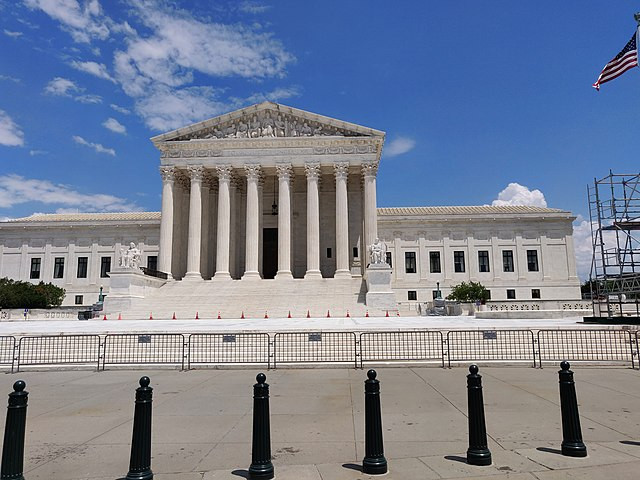The U.S. Supreme Court has agreed to hear an appeal from the Biden administration challenging state bans on gender-affirming care for minors. This marks a critical juncture in the ongoing battle over healthcare rights for transgender individuals, with the Court set to weigh in on the constitutionality of such state laws.
The case under review involves a Tennessee law that restricts the use of puberty blockers and hormone therapy for transgender minors. The law had been temporarily blocked by a federal judge in Nashville, only for that decision to be overturned by a divided three-judge panel of the 6th Circuit Court of Appeals. The Supreme Court's decision to hear the appeal signifies the first time the high court will directly address the issue of gender-affirming care bans.
The Tennessee law, enacted amid a broader wave of state-level restrictions on transgender rights, prohibits children from receiving certain medical treatments aimed at addressing gender dysphoria. These treatments include puberty blockers, hormone therapies, and surgical procedures. Proponents of the law argue that it protects minors from making irreversible medical decisions before they reach adulthood. Critics, however, contend that it discriminates against transgender youth and infringes on the rights of parents to make medical decisions for their children.
The Supreme Court's involvement comes as the nation grapples with a complex patchwork of laws and policies regarding transgender rights. To date, 25 states have enacted laws restricting or banning gender-affirming medical care for minors, despite such treatments being endorsed by major medical associations like the American Medical Association and the American Academy of Pediatrics.
The Biden administration, along with Democratic-led states, has been at the forefront of efforts to protect transgender rights. Solicitor General Elizabeth Prelogar, representing the administration, emphasized the urgency of resolving the legal uncertainties surrounding these state bans. "These laws, and the conflicting court decisions about their validity, are creating profound uncertainty for transgender adolescents and their families around the nation," Prelogar stated in a filing.
The case has garnered significant attention and support from various quarters. Actor Elliot Page, known for his roles in "Juno" and "The Umbrella Academy," joined 57 other transgender individuals in filing a legal brief urging the Supreme Court to review the case. They argue that the state bans on gender-affirming care leave transgender youth and their families in a precarious situation, unsure of where they can access necessary medical care.
The Tennessee law was originally challenged by families and doctors who argued that it unconstitutionally discriminated against transgender youth based on sex and interfered with parental rights. U.S. District Judge Eli Richardson, who initially blocked the law, found Tennessee's arguments unconvincing and lacking in legitimate medical evidence. However, this ruling was later overturned, allowing the law to take effect.
The controversy over the Tennessee law reflects broader tensions across the United States regarding transgender rights and healthcare. In addition to medical treatment bans, many states have enacted laws affecting transgender individuals' participation in sports and access to bathrooms aligning with their gender identity. The Supreme Court's decision on the Tennessee case could have far-reaching implications for these and other related issues.
Republican lawmakers in Tennessee, who spearheaded the legislation, argue that it is necessary to protect children from making life-altering decisions prematurely. "We always knew liberals would try to use the court system to undo a strong law protecting kids," stated House Majority Leader William Lamberth, who co-sponsored the bill.
Conversely, advocacy groups and legal experts stress the importance of allowing transgender youth access to evidence-based medical care. "Tennesseans deserve the freedom to live their lives as their authentic selves without government interference," said Lucas Cameron-Vaughn, staff attorney at the ACLU of Tennessee. "The Court has the power to protect trans youth's right to access the healthcare they need by striking down this discriminatory law."






